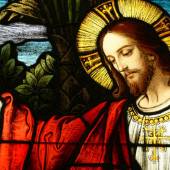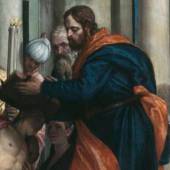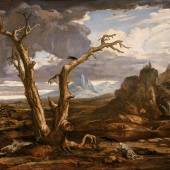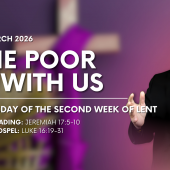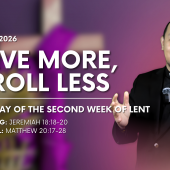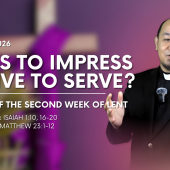Pastoral reflection on past, present, and post COVID-19 era
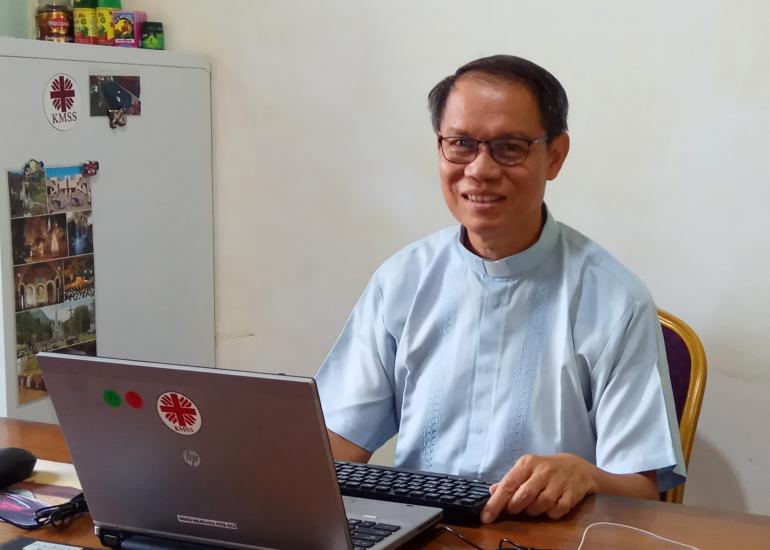
By Fr. Hubert Myo Thant Oo
No one wanted to be in a situation that rapidly deteriorates and slowly destroys our political, economic, social, and individual systems.
Before the outbreak of COVID-19, people were so reckless. We extract from and exploit our natural resources.
Pope Emeritus Benedict XVI has urged us to realize that creation is harmed if we are left to have the final word about it, "where everything is simply our property and we use it for ourselves alone."
"The misuse of creation begins when we no longer recognize any higher instance than ourselves, when we see nothing else but ourselves," he added.
The medical world is trying its best to cope with the spread of the coronavirus disease.
Without the courageous and dedicated hands of volunteers, medical personnel, and civil society, it might be be very difficult for many in poor countries.
Now, the beauty of humankind can be seen in the sacrificial love of many volunteers who dare to care for victims and challenge the virus. The pandemic brings forth the emergence of loving hearts and helping hands.
The present crisis is a Passover Resurgence. It is not only an Exodus experience (Ex. 14:5-31) of Moses, but also a Paschal Mystery of our Redeemer, Jesus Christ, who explicitly announced that the Son of Man must suffer, die, and rise again.
We have been repeatedly reminded by many holy popes since the time of Leo XIII during the Industrial Revolution in Britain in the 1830s and to the United States and other countries in the 1840s.
His famous 1891 encyclical "Rerum Novarum" outlined the rights of workers, safe working conditions, and the formation of trade unions while opposing both socialism and laissez-faire capitalism.
This was, we believe, the first and foremost papal teaching of preferring human ecology to profit-orientated industrialism.
Since that time of smokes and smells, the beauty and cleanliness of our Mother Earth began to suffer from greedy people.
The second period of industrialization that took place from the late 19th to the early 20th centuries saw rapid advances in steel, electric, and automobile industries.
We, human beings, are synonym to hungry beings and are never satisfied with what we have.
Dissatisfaction naturally brings forth other evil siblings, such as anger, betrayal, carelessness, destruction, envy, and fornication that affect people and nature.
The present crisis calls on us to be more conscientious in using our natural resources.
We have been reminded by Pope Francis through his Laudato si encyclical, and later by his sermons and public speeches, to always care for the earth.
The protection of the environment is an integral part of the development process that was explicitly expressed in Laudato Si (n. 141) as Economic Ecology.
Protection of indigenous peoples and their nature-loving-culture is encouraged. It is also mentioned in Laudato si (n. 143) as Cultural Ecology.
Ecology of Daily life is exactly pinpointed in No. 147 of Laudato Si: "Authentic development includes efforts to bring about an integral improvement in the quality of human life."
In our rooms, our homes, our workplaces and neighborhoods, we use our environment as a way of expressing our identity.
We make every effort to adapt to our environment, but when it is disorderly, chaotic or saturated with noise and ugliness, such overstimulation makes it difficult to find ourselves integrated and happy.
The necessary but infamous lockdown imposed by authorities to control the outbreak of the pandemic really touched the issues raised by Pope Francis in the encyclical.
How do we live in the same house for many days while nurturing all our personal likes and dislikes?
The "Enter-and-Exit, Eat-and-Sleep" lifestyle is now being challenged as we are forbidden to go outside.
This is an opportune time to rethink and resettle the quality of human life in a radical way.
It is the favorable time to rebuild family union and care for home and the environment.
"God forgives always; we men forgive sometimes; the Earth never forgives," the pope quoted a Spanish proverb.
The Holy Father exhorted us to contribute in our own small way to heal the earth. Our quality of life must be in tune with nature, he said.
Dancing with nature is much better than destroying it through our greed.
For the post-COVID-19 era, there should be no other way than the way of living in love with nature and humankind.
All activities must be imbued with conservation, to have no waste, to be housed well, and to be fed by the fruits of the earth.
Pope Emeritus Benedict XVI in his encyclical "Deus Caritas Est" [no.30] said: "Today the means of mass communication have made our planet smaller, rapidly narrowing the distance between different people and cultures."
He said that this "togetherness" gives rise to misunderstandings and tension ... "yet our ability to know almost instantly about the needs of others challenges us to share their situation and their difficulties."
"Despite the great advances made in science and technology, each day we see how much suffering there is in the world on account of different kinds of poverty, both material and spiritual," added the pontiff.
"Our times call for a new readiness to assist our neighbors in need."
Finally, individual change of lifestyle could bring healthy pressure on those who wield political, economic, and social power since the time of first industrial revolution.
Father Hubert Myo Thant Oo is director of Karuna Mawlamyine Social Services in Myanmar.
Radio Veritas Asia (RVA), a media platform of the Catholic Church, aims to share Christ. RVA started in 1969 as a continental Catholic radio station to serve Asian countries in their respective local language, thus earning the tag “the Voice of Asian Christianity.” Responding to the emerging context, RVA embraced media platforms to connect with the global Asian audience via its 21 language websites and various social media platforms.









